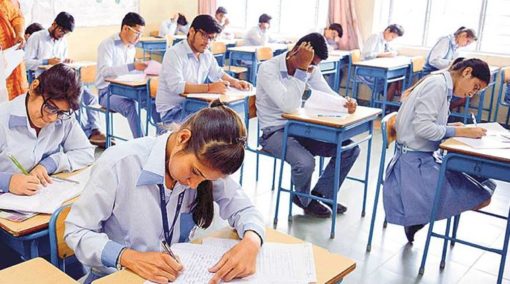
Thousands of students from Economically Weaker Section (EWS) who were admitted to private schools in 2011 under the Right to Education Act in the national capital are facing the risk of being dropped as they entered Class IX in this academic session. Fears have mounted after several schools in the national capital have handed out notices to the parents of the students to pay the full fee or take their wards out of the schools. The main reason for such notices is the validity of Right to Education Act which mandates free and compulsory education to children between 6 to 14 years upto Class VIII only.
Delhi was among the first states to implement Right to Children to Free and Compulsory Education Act, popularly known as RTE Act, which came into force from April 2010 after which students were admitted in various schools. However, the Act came into force in Delhi only in 2011. The situation is expected to worsen in next two years as the students who entered schools in Nursery will reach Class IX in the coming years.
Private schools citing the RTE have asked parents to make suitable arrangements to continue their children’s education. One such notice by Bhartiya Vidya Bhawan school, reported by The Telegraph, reads, “Your son/daughter was admitted in the school in economically weaker section/DG (Disadvantaged Group) category group. He or she has completed elementary education (Class VIII) in compliance with the above article of RTE Act 2009. Your son/daughter… is eligible for free and compulsory education up to Class VIII. You are therefore requested to pay full school fee equivalent to open seat admitted student/general category students from next academic session i.e. April 2019.”
A similar notice sent to Naresh Agarwal, whose daughter Natasha (14) has just entered Class IX in Amity International School in Mayur Vihar, has left him restless and worried. Talking to Newsclick, he said, “We were called by the school principal to tell us that the limit of coverage under RTE has expired for my daughter this year and I should deposit Rs 50,000/- as admission fee and additional Rs 20,000/- as tuition fee quarterly. I earn my livelihood by operating e-rickshaw and this amount is beyond my capacity. They have given this notice at such a juncture that I cannot even shift my children to government schools as the admission process is over now."
Explaining the glaring situation faced by a lot of students, Agarwal added, “My niece is also studying in the same school. Her father expired few years ago and her mother is a housewife. How would she continue her studies in this grim situation."
It is learnt that several states have flagged similar issues to Ministry of Human Resources Development. After the roll out of the act, only 18 states and Union territories have implemented the RTE Act whereas 16 states have so far declined to enact the central legislation. The states and Union territories reimburse the private schools for implementing the Act with the same rate as the cost incurred per child at a government school with Centre bearing 60% of the cost. Newsclick tried to reach Rina Ray, Secretary, Department of School Education and Literacy to find out her response on the stalemate, however, officials at her office told she was busy in a meeting.
RTE activist Ashok Agarwal maintains that the situation could have been averted if the Ministry of Human Resources Development had given timely attention to his requests. Talking to Newsclick, he said that thousands of students across the country will be dropped by the private schools. He said, “In Delhi, private schools running on government land are required to impart education upto Class XII but students studying in other schools may not be that lucky. I met Union HRD minister three times and I was ensured that necessary action will be taken. Their reluctance completely shows that they are not concerned about the education and future of the students." Emphasising that the situation demands quick action, he added, “Only an amendment can save these students."




